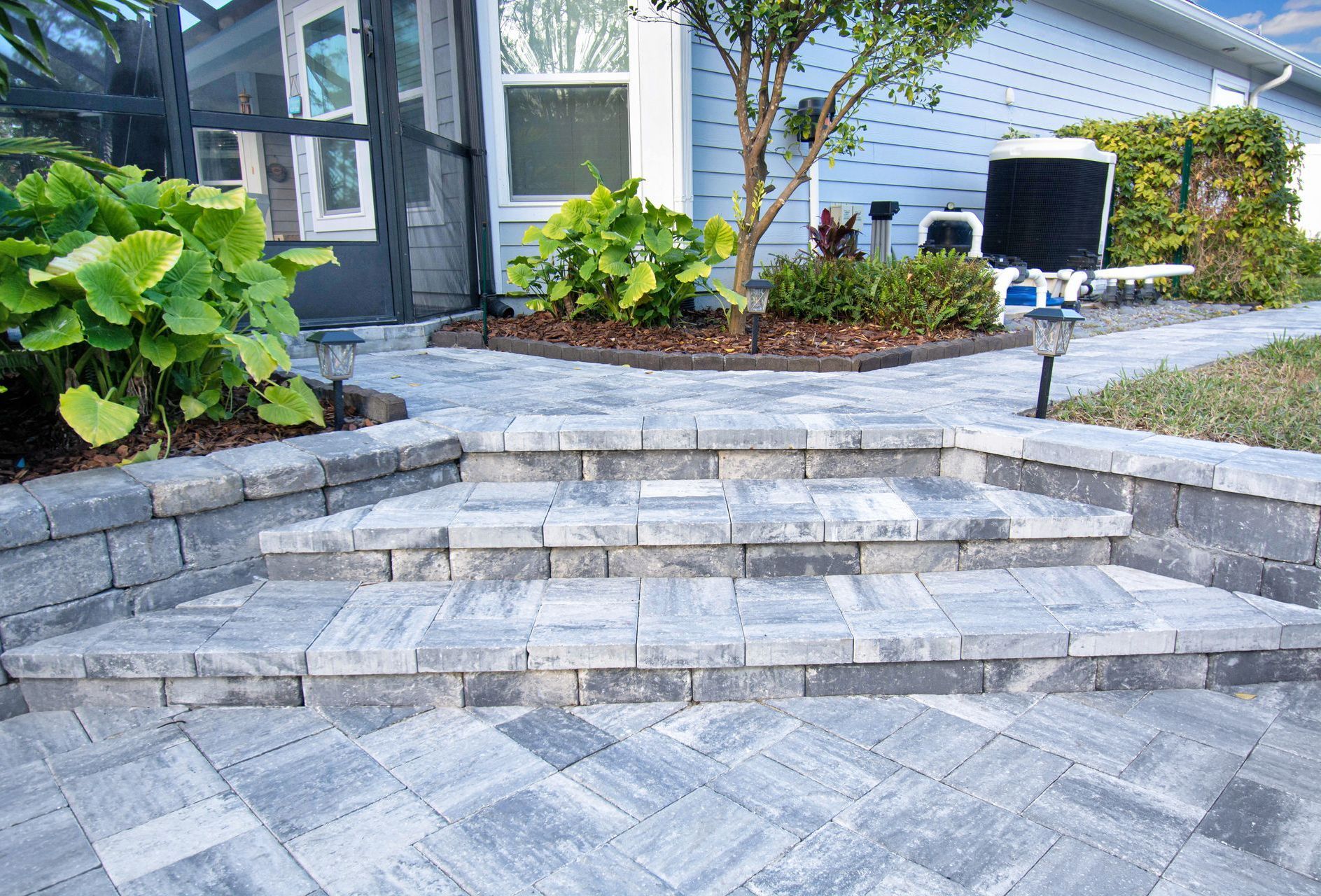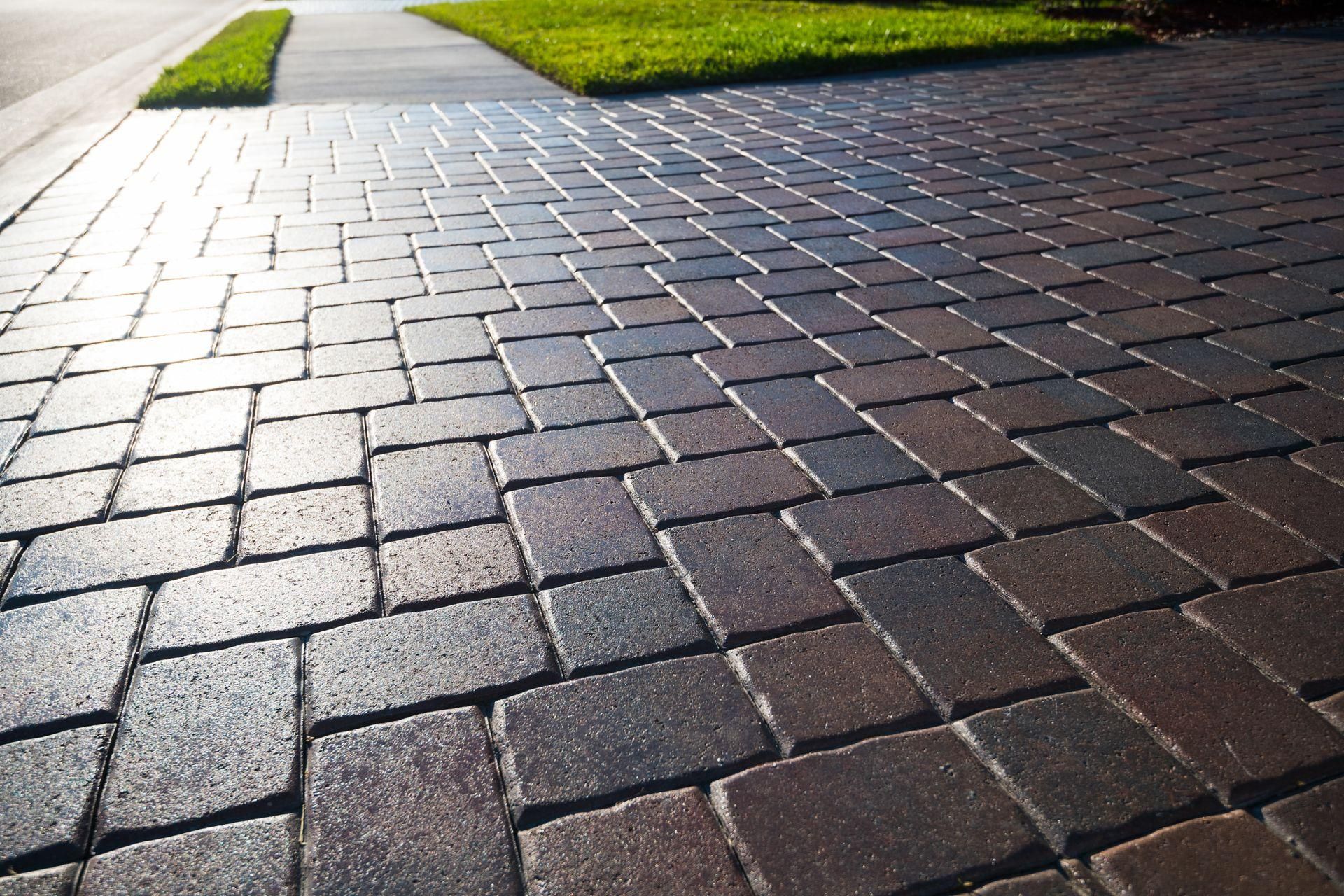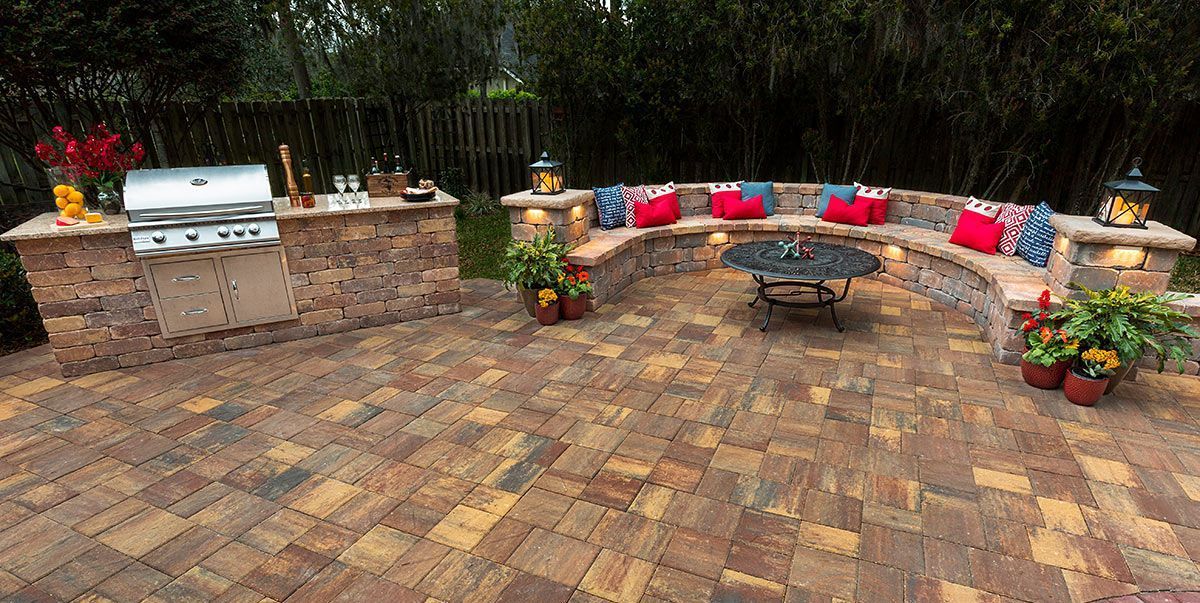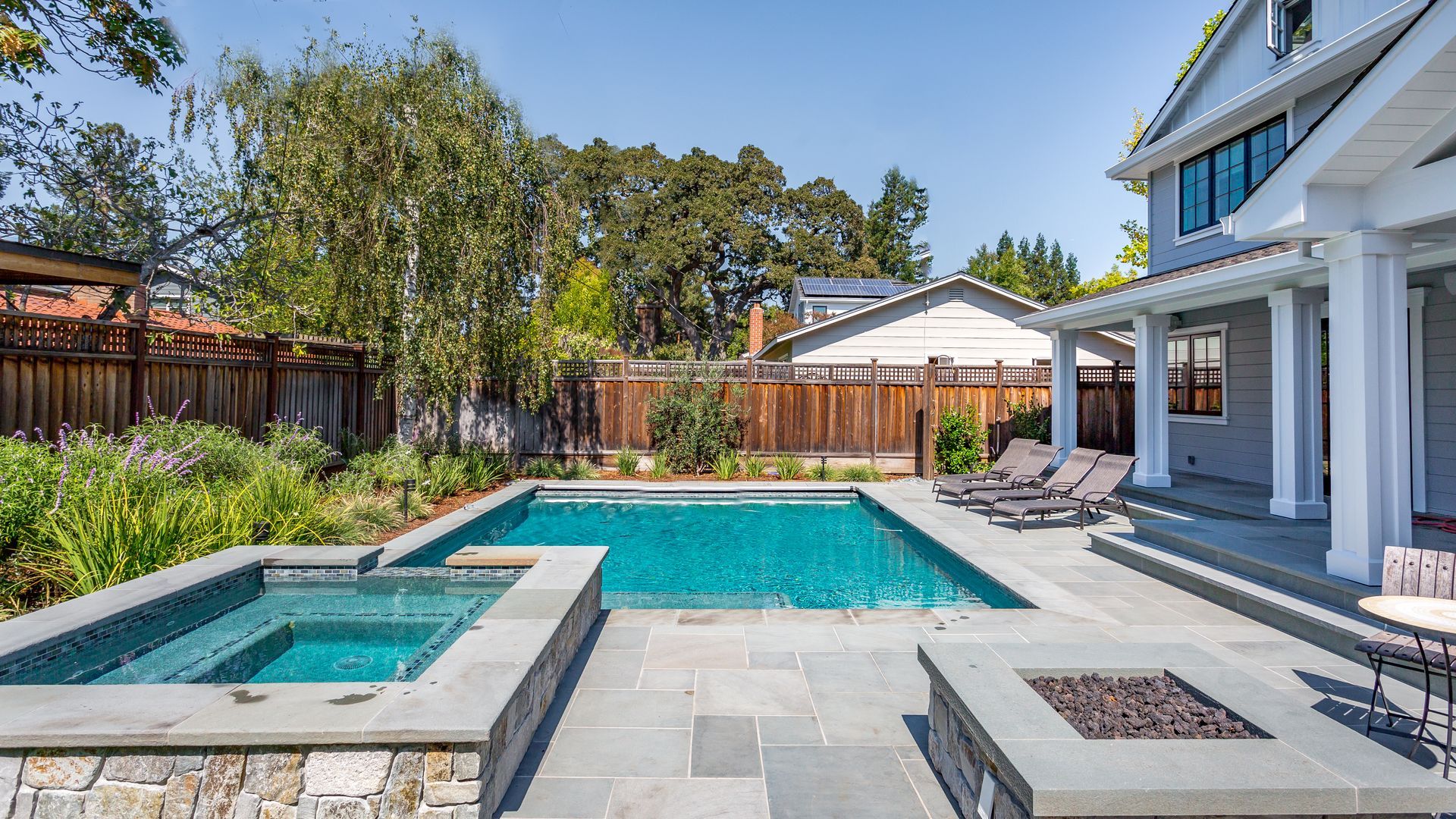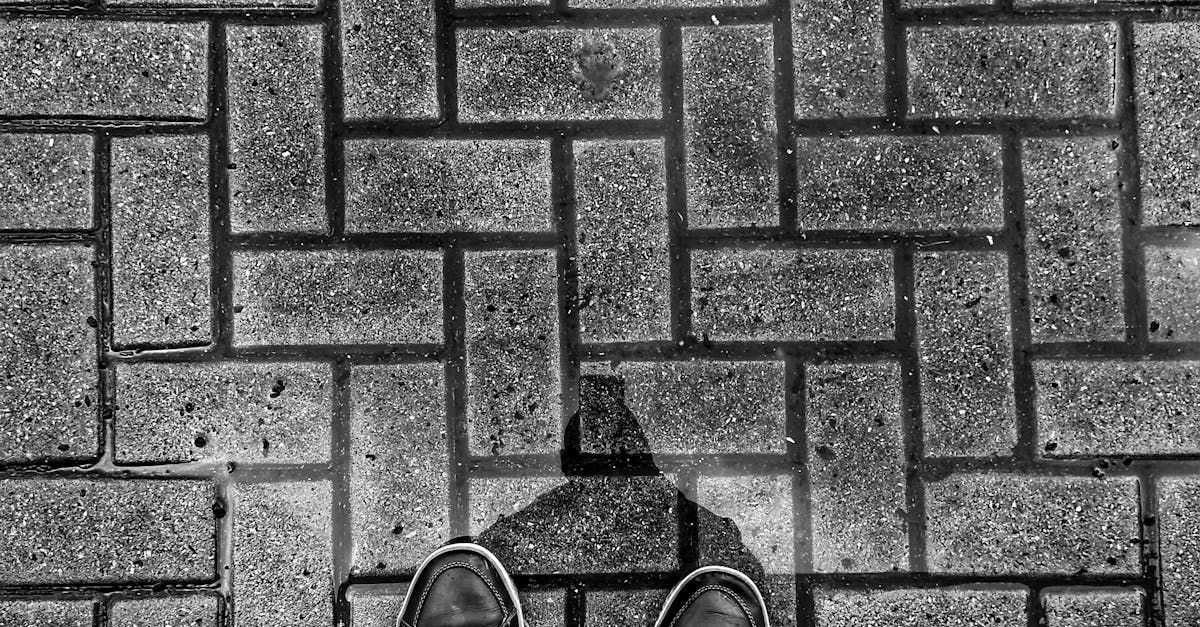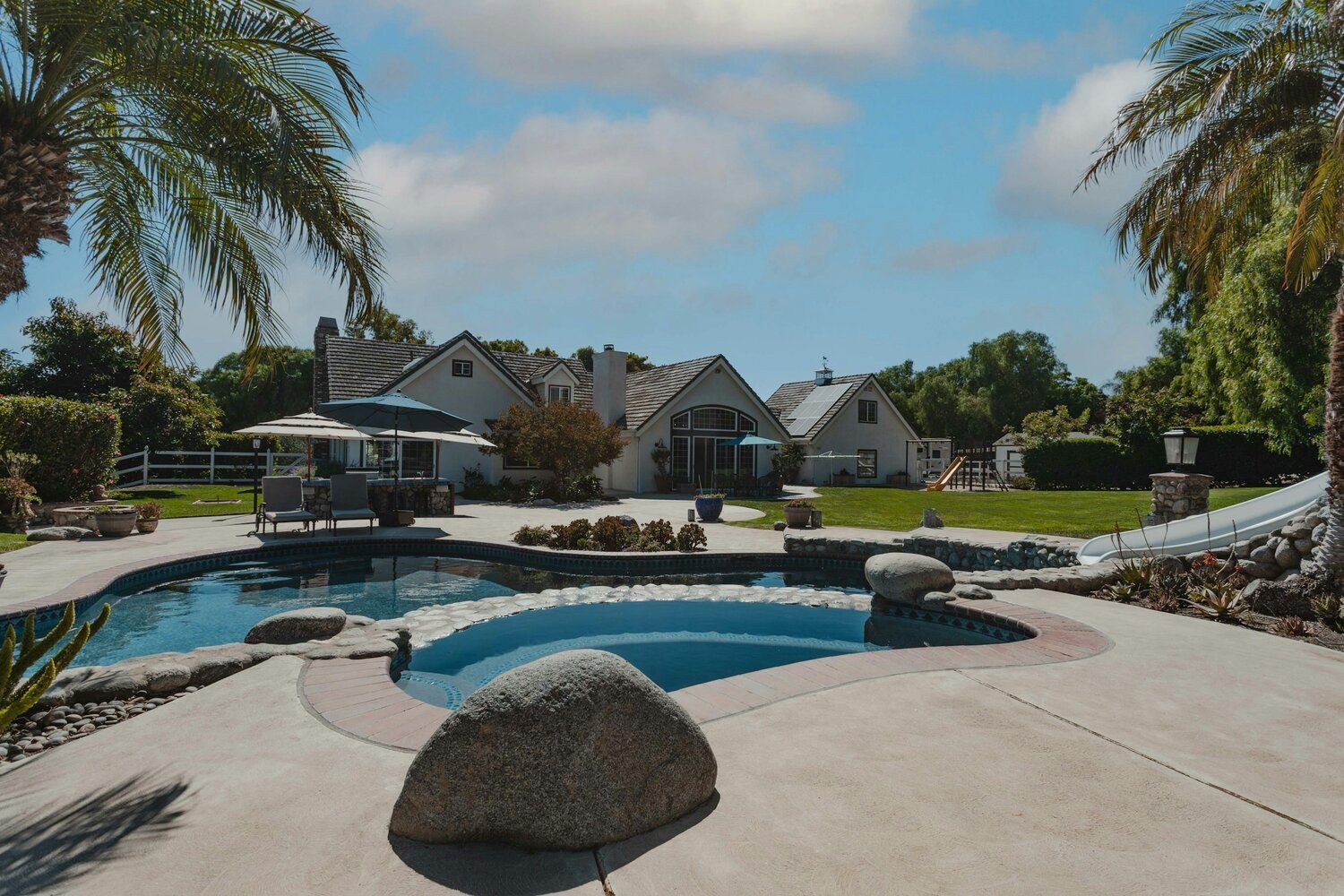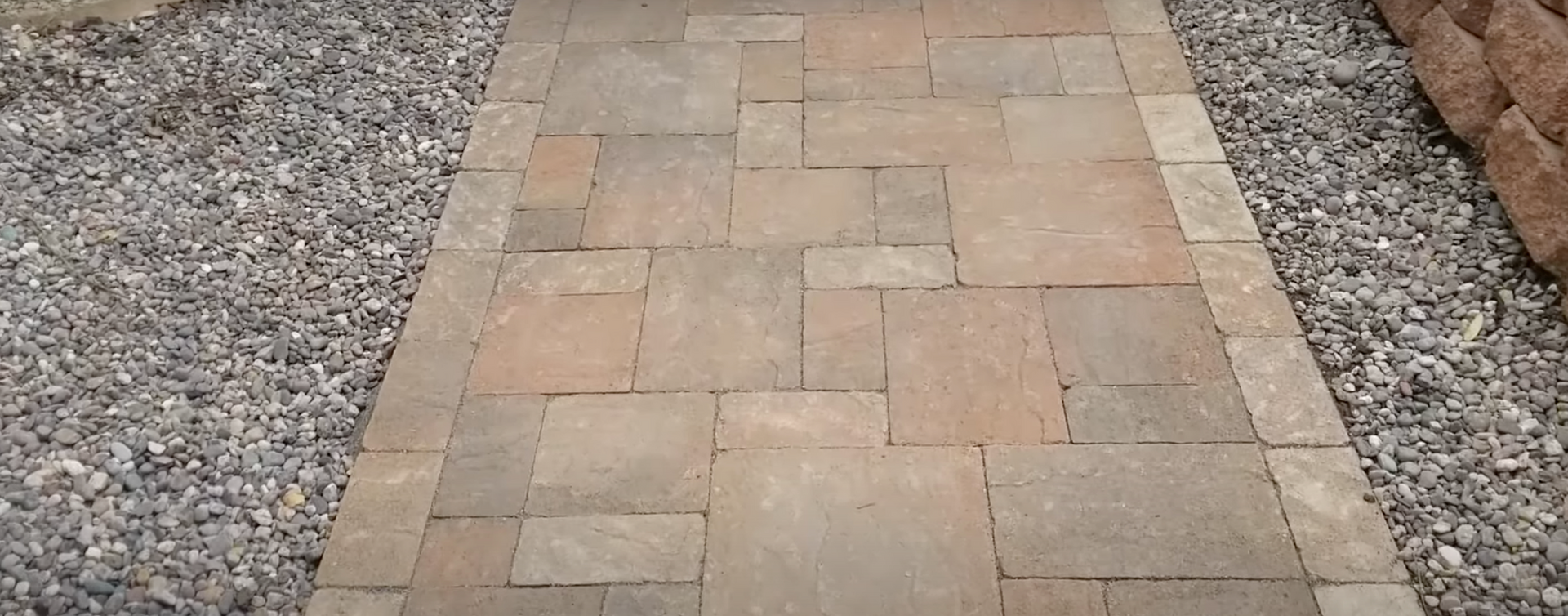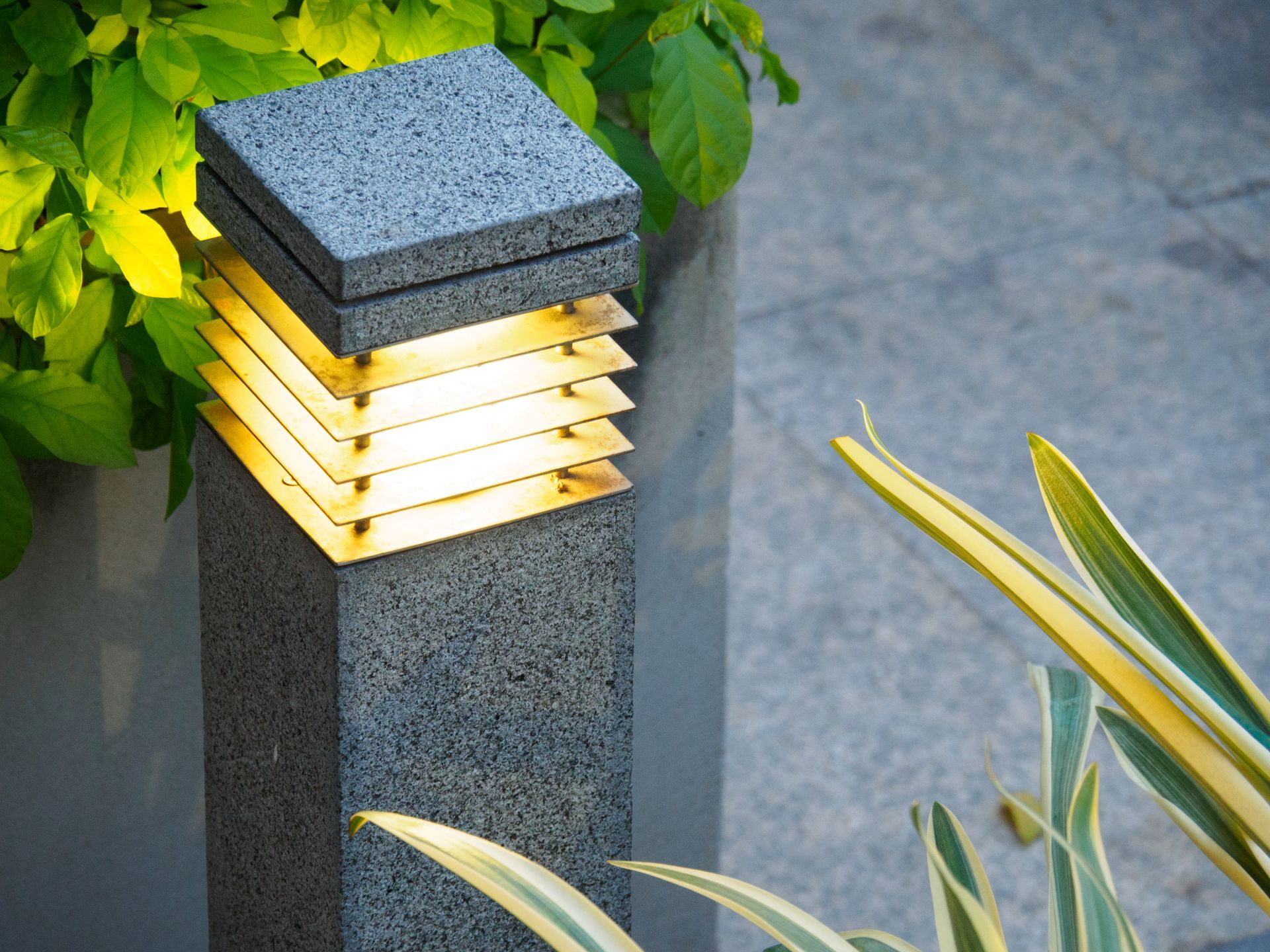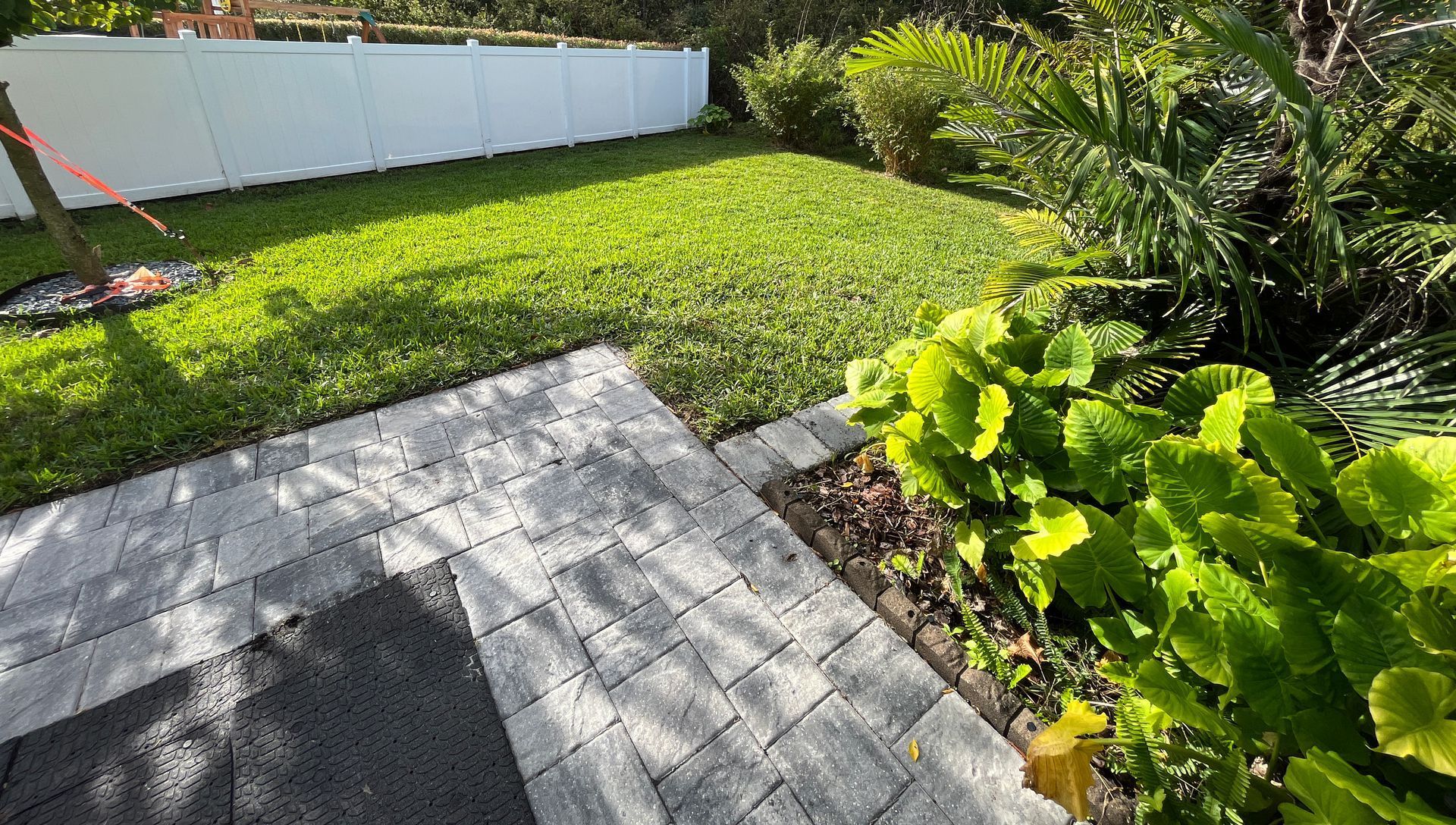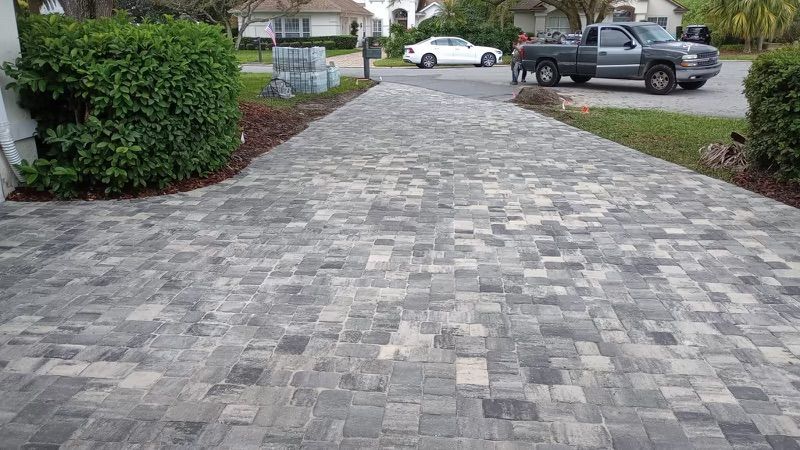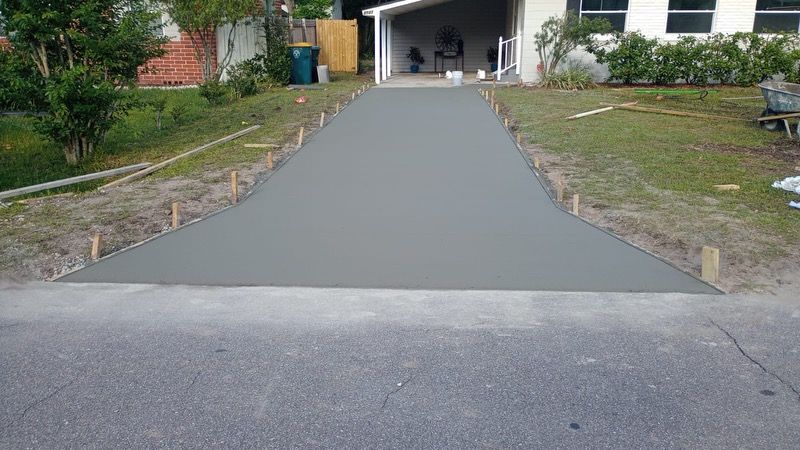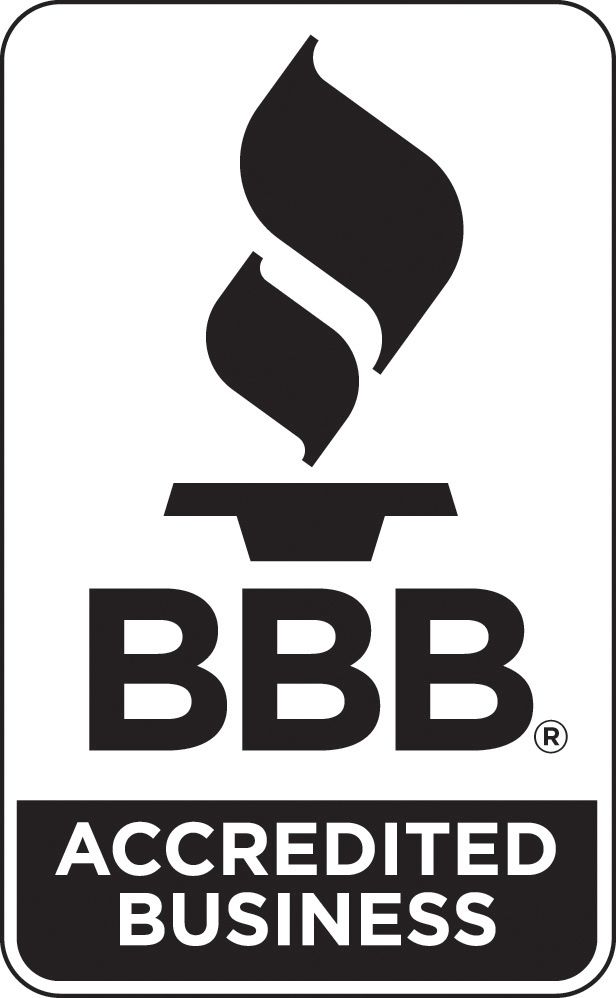Which Lasts Longer and Offers Better Value? Concrete or Pavers for Driveways
Your driveway does more than just get you from the street to your garage—it affects your home’s look, durability, and even resale value. When choosing between concrete and pavers, both have their strengths. Concrete is budget-friendly and simple, while pavers offer more durability and style.
But which one gives you the best value in the long run? Let’s break it down.
How Long Do They Last?
| FEATURE | CONCRETE DRIVEWAYS | PAVER DRIVEWAYS |
|---|---|---|
| Durability | 20-30 years with proper care | 30-50+ years with proper maintenance |
| Surface Stability | Solid surface, won’t shift over time | Flexible design adjusts to ground movement |
| Maintenance | Less daily upkeep; sealing helps against stains | Low maintenance; occasional sanding and sealing |
| Repair Difficulty | Cracks can be tricky to repair; patches may not blend | Easy to repair; replace individual pavers as needed |
| Best For | Large driveways; cost-effective for big areas | Long-lasting driveways with easy repairability |
| Common Issues | Prone to cracking due to ground movement and weather | Requires occasional re-sanding and sealing |
Lifespan matters when choosing a driveway. You want something that holds up without turning into a cracked mess.
Which Costs More?
| Cost Factor | Concrete Driveways | Paver Driveways |
|---|---|---|
| Upfront Cost | $4-$10 per square foot (Cheaper initially) | $10-$30 per square foot (More expensive upfront) |
| Long-Term Costs | Higher repair costs due to cracks | Lower repair costs; easy to replace individual pavers |
| Repair Difficulty | Fixing cracks can be expensive and tricky | Simple repairs by swapping out damaged pavers |
| Overall Value | Cheaper upfront but may require costly repairs | osts more at first but lasts longer with easier maintenance |
Lifespan matters when choosing a driveway. You want something that holds up without turning into a cracked mess.
Which is Easier to Maintain?
Nobody wants a driveway that’s a hassle to take care of. So, which one is less work—concrete or pavers?
Concrete: Low Maintenance Day-to-Day, Tougher Repairs
- Requires less regular upkeep. Aside from sealing every few years, concrete doesn’t need much attention.
- Smooth surface. Since it’s one solid piece, there are no gaps for weeds to grow.
- Stains can be managed. Sealing helps prevent deep stains, and pressure washing can keep it looking clean.
Pavers: Easier to Clean, Simple to Fix
- Easy to clean. Dirt and spills can be rinsed off with water.
- Repairs are quick. If one paver breaks, you can replace just that one instead of fixing the whole driveway.
- Might need re-sanding. Adding sand between pavers helps keep weeds from growing.
Which One is Less Work? Concrete needs sealing and can be expensive to repair. Pavers might need some sand and occasional sealing, but they’re easier to fix. If you want a driveway that’s simple to maintain, pavers are the better choice.
How Do They Handle Different Weather?
Weather can be tough on a driveway. Heat, cold, and rain all play a role in how long it lasts. So, which one holds up better—concrete or pavers?
Hot Weather: Concrete Heats Up, Pavers Stay Cooler
- Concrete soaks up heat. On hot days, it gets scorching and can fade or crack from expansion.
- Pavers allow heat to escape. The small gaps between them help with airflow, keeping them cooler underfoot.
Cold Weather: Pavers Handle Freezing Better
- Concrete can crack. Water gets into tiny cracks, freezes, and expands, making the damage worse over time.
- Pavers flex with the ground. They shift slightly as temperatures change, reducing the risk of cracks.
Rain & Drainage: Pavers Help Water Flow
- Concrete can cause puddles. If the surface isn’t sloped right, water collects, leading to slick spots and possible damage.
- Pavers drain naturally. The gaps between them let water soak through, helping prevent standing water and erosion.
-
Concrete struggles with extreme temperatures and drainage issues. Pavers adjust better, stay cooler, and let water drain.
Which Looks Better?
| Feature | Concrete Driveways | Paver Driveways |
|---|---|---|
| Appearance | Smooth and uniform; modern look | Variety of styles; customizable colors and shapes |
| Customization | Stamped patterns and colors available | Unique textures and high-end appeal |
| Repair Blending | Patches may be visible | Seamless repairs with new pavers |
If you like a clean, modern driveway with minimal upkeep, concrete is a solid choice. If you want something more stylish and customizable, pavers give you more options.
Does It Help Your Home’s Value?
- Pavers: A Bigger Boost for Resale
- Makes a strong first impression. Pavers look more stylish and high-end, which can help attract buyers.
- It can increase home value. Because they last longer and look better, homes with paver driveways may sell for more.
- Concrete: A Dependable Choice
- A solid, durable option. Concrete is widely used and lasts a long time with proper care.
- Adds value, but not as much as pavers. A well-maintained concrete driveway is a good selling point, but it won’t stand out like pavers.
Concrete is a solid, reliable option, but pavers offer more curb appeal and can help increase resale value.
Frequently Asked Questions
What’s the Downside of a Paver Driveway?
Higher Cost: The main drawback of pavers is the price. They cost more upfront compared to concrete, but their durability and low maintenance can make them worth it over time.
Which Costs More: Pavers or Concrete?
Concrete is Cheaper at First: A standard concrete driveway is more affordable than pavers. However, adding color, stamping, or decorative finishes can push the price up to match or even exceed the cost of pavers.
What’s the Most Affordable and Durable Driveway Option?
Gravel: If you’re looking for the cheapest driveway material, gravel is the way to go. It’s widely available, easy to install, and costs less than materials like resin, brick, or cobblestone.
Are Pavers a Smart Investment?
Yes! Paver driveways not only last longer but can also increase home value. On average, they offer a 109% return on investment, adding thousands to a home’s resale price.
What’s the Best Paver Pattern for a Driveway?
Herringbone: This pattern is both strong and stylish. The bricks or pavers are arranged in a zig-zag design at a 45- or 90-degree angle, creating a durable and visually appealing driveway.
Final Verdict: Which One Is Best for You?
If you want an affordable, strong driveway with minimal upkeep, concrete is a smart pick. If you prefer a long-lasting, custom look with easier repairs, pavers are the way to go.
If you're still unsure which option is right for you, Your Outdoor Transformation can help. Our team specializes in high-quality driveway installations that fit your style and budget. Contact Us today to get expert advice and start planning your new driveway!


